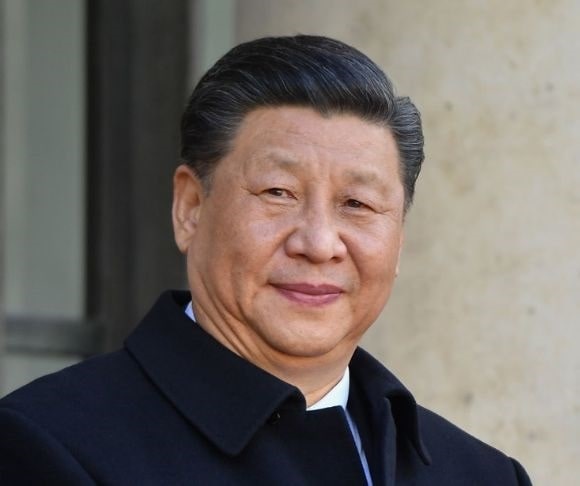
Xi Jinping (Photo by Stephane Cardinale – Corbis/Corbis via Getty Images)
Many defense analysts believe the People’s Republic of China (PRC) is paying close attention to Russia’s invasion of Ukraine. Of particular interest to the Chinese Communist Party (CCP) is the horrifying image of the Kremlin forces’ brutality toward innocent civilians in Ukraine. Such behavior, combined with Russia’s struggle to defeat the much smaller but highly motivated Ukraine military and armed civilians, is not likely to buff the shiny new China-Russia friendship agreement. The director of the US Central Intelligence Agency (CIA), William Burns, has provided an assessment of China’s close observation of Putin’s gambit against the Kyiv government.
“It strikes us … that [China’s President] Xi Jinping is a little bit unsettled by the reputational damage that can come to China by the association with the brutishness of Russia’s aggression against Ukrainians [and] unsettled certainly by the economic uncertainty that’s been produced by the war,” Burns told the British Financial Times. The economic uncertainty resulting from Russia’s faltering attempt to subjugate Ukraine has been an unwelcome surprise for Xi. For example, the sudden halt of the substantial crop of the world’s wheat coming from Ukraine could have potential PRC clients turning to the United States, where wheat exports are, if not plentiful, at least adequate.
On top of the economic uncertainty attending Moscow’s rampage through Ukraine, Russia could quickly become an unwanted financial burden to Beijing. Undoubtedly surprising to CCP leaders was the abrupt stampede of international companies taking their business out of Russia. Less than two weeks after Moscow initiated the invasion, a significant number of companies reduced their business or left Russia altogether. “By March 10, 2022, 325 had suspended or scaled down their dealings with Russia,” acknowledged Ward Williams in Investopedia. Many of the companies that have exited Russia are among the biggest in the world in terms of revenue, including Amazon, Apple, Volkswagen, Toyota Motor, and Samsung Electronics. The PRC’s economy – the second largest after that of the United States – depends on global participation and would be hurt by a similar exodus.
Perhaps the most important lesson for the Xi regime is how quickly the Free World came to Ukraine’s defense at the outset of the unprovoked Kremlin invasion. At the recent Ukraine Defense Consultative Group meeting at Ramstein Air Base, Germany, more than 40 countries, including NATO and EU representatives, and, significantly, envoys from non-European countries – such as Australia, Jordan, Liberia, Morocco, New Zealand, and South Korea – pledged material support as well. As US Secretary of Defense Lloyd Austin told those assembled:
“We all start today from a position of moral clarity. Russia is waging a war of choice to indulge the ambitions of one man. Ukraine is fighting a war of necessity to defend its democracy, sovereignty, and citizens. But the stakes stretch beyond Ukraine—and even beyond Europe. Russia’s invasion is baseless, reckless, and lawless. It is an affront to the rules-based international order. It is a challenge to free people everywhere.”

Xi Jinping (Photo by Stephane Cardinale – Corbis/Corbis via Getty Images)
Beijing’s continued threats against Taiwan and apparent willingness to act menacingly by invading Taiwanese air space may not fully take into account the cohesion developed among nations banding together to denounce the Russian aggression. Should the PRC decide to take similar action against Taiwan, the Indo-Pacific nations might galvanize quickly to thwart such behavior.
“Beijing thinks there will be no cost for such belligerent conduct and is daring the United States and the international community to act,” wrote Gordon G. Chang, author of The Coming Collapse of China, in a recent article in Newsweek. If Putin’s experience in Ukraine is a primer for what Xi would face after a Taiwan invasion, Beijing may think twice.
The views expressed are those of the author and not of any other affiliation.
Remember to check out the web’s best conservative news aggregator
Whatfinger.com — the #1 Alternative to the Drudge

